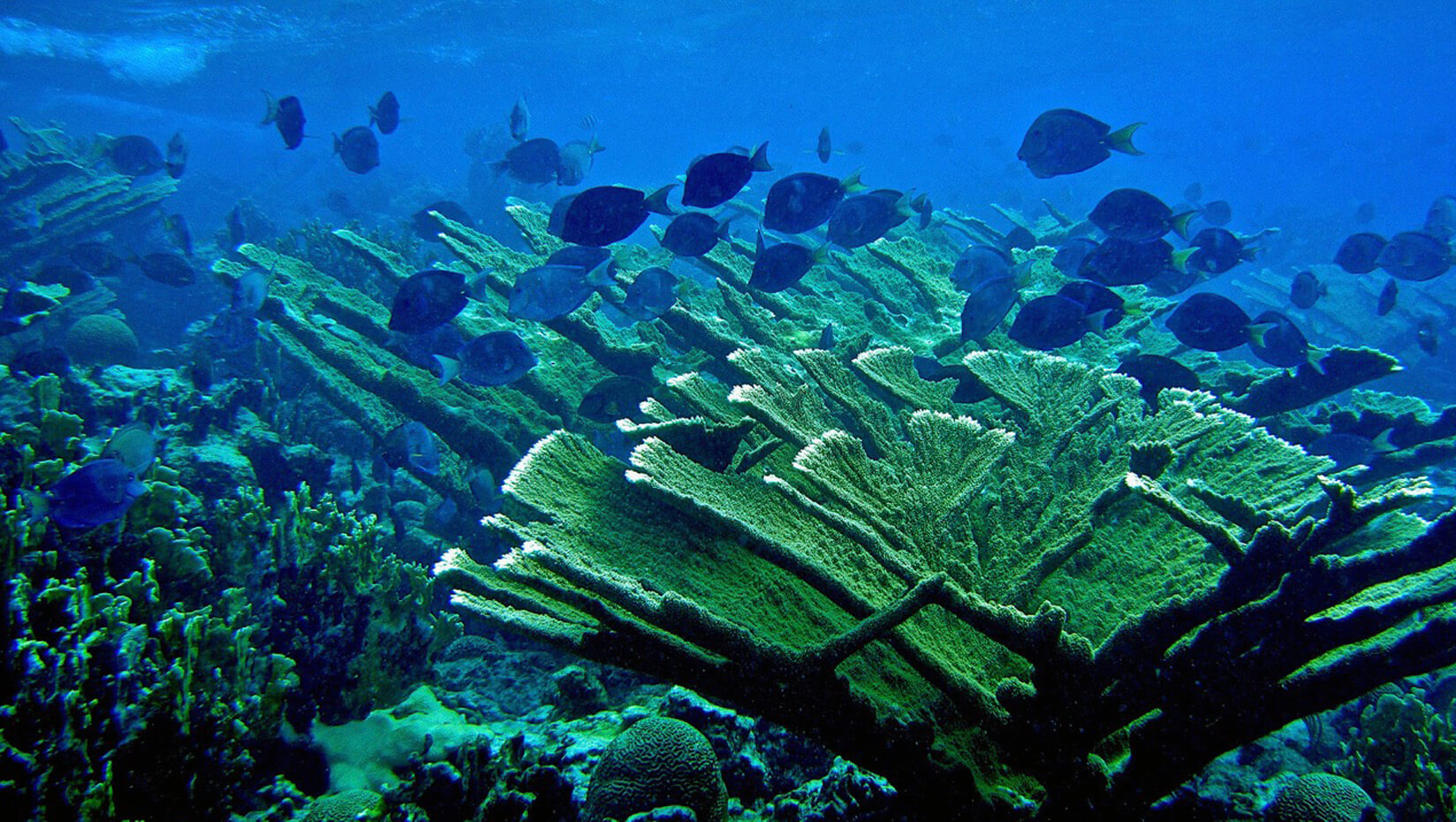
Study finds marine protected areas help coral reefs
Transcript
Robert Steneck:
Coral reefs are among the world’s most endangered ecosystems. I think that there is a majority opinion that this is a climate-related crisis for coral reefs, but it’s not really like a blanket of death over all these ecosystems.
What our research was able to do is to go along an 800‑kilometer stretch of the eastern Caribbean. Looking at the coral reefs, I was there long enough that I could interview people and managers. I could figure out the different management strategies that were being used in different places.
What I found was if you manage your reef fish properly, the corals will respond positively. What we’re finding is that coral reefs, when properly managed, can be highly resilient. This has been known mostly for the Indo‑Pacific.
Shockingly, in the Caribbean, there is not a single example of resilience in the scientific literature. With this research, I uncovered this resilience, but it is not black and white.
The problem is that when we talk about ecosystem-based management, what happens is we don’t manage ecosystems. We manage people.
For example, for corals to get started in life, they can’t really have very much seaweed on the seafloor. The seaweed is controlled by the grazing fish like parrotfish.
The managers are controlling fishing pressure, and so that can have a positive effect on parrotfish. The parrotfish are controlling the seaweed. The seaweed is controlling the coral. The essence of our paper is that there’s an attenuating effect of management that makes the impact relatively subtle, but it is there, especially if it’s measured properly.
These coral reefs can recover. They recover at scales that are not that acceptable to a lot of humans. If you see a reef that you loved that had brilliant corals and it dies, it might take 10 years before it recovers.
For a human, that’s a lot of time. For coral, that’s a blink of an eye.
